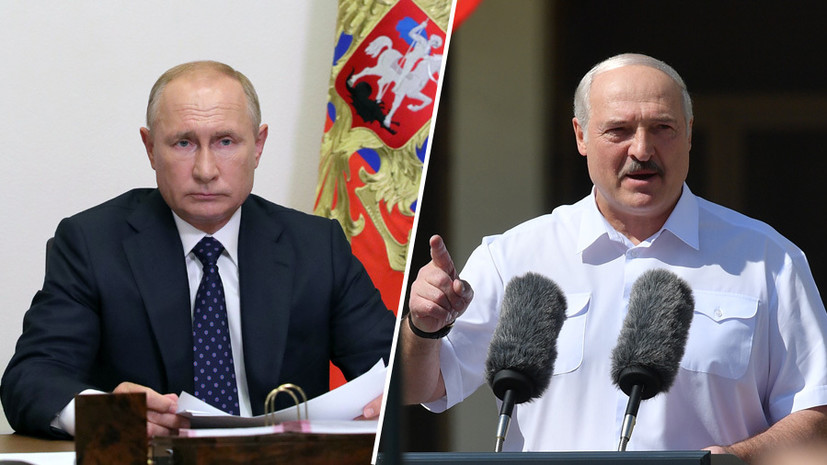On Sunday, August 30, a telephone conversation took place between the presidents of Russia and Belarus, Vladimir Putin and Alexander Lukashenko. During the conversation, Putin congratulated the Belarusian leader on his birthday. The leaders also discussed issues of bilateral relations.
“During the telephone conversation, Vladimir Putin warmly congratulated the President of the Republic of Belarus Alexander Lukashenko on his birthday. They reaffirmed their mutual disposition to further strengthen the Russian-Belarusian alliance and expand mutually beneficial cooperation in all areas, ”the statement on the Kremlin’s website says.
In addition, Putin and Lukashenko agreed to hold a meeting in Moscow in the coming weeks.
According to Sputnik Belarus, the presidents discussed the situation in the country in a conversation.
“The leaders discussed all the topical issues of today. In addition, we touched upon the general situation in Belarus in the conversation, ”the message says.
It is noted that Lukashenko and Putin also discussed the situation around the republic.
In turn, the press secretary of the Russian leader Dmitry Peskov specified that the exact date of the meeting of the presidents has not yet been set.
“Not yet,” said Peskov, answering a question from RIA Novosti.
On August 28, Lukashenko announced that Minsk and Moscow would use a joint grouping of armed forces if they “twitch” on the western border of the Union State. According to him, the basis of the joint grouping will be the Belarusian army.
Lukashenko added that Minsk and Moscow “will not tremble, neither the hand, nor the leg in order to settle everyone together”. He also said that in this case, the Russian side "is not saving Belarus so much, because there is a threat to Russia itself."
“We have a contract. I say (to the President of Russia): let's think about what we will do. He says: we know what they want. And Putin has already gone through several such stages, from the Chechen war, and knows what is happening around the borders. And we agreed with him. We will cope with this problem, ”Lukashenka said.
Earlier, Vladimir Putin announced the formation in Russia of a reserve of security officials who can provide assistance to Belarus. The Russian leader stressed that their involvement will be possible only if the extremists in the republic cross certain boundaries. Putin added that, in his opinion, Russia is behaving "much more restrained and neutral in relation to the events in Belarus than many other countries, European and American."
“In general, the situation is now leveling off, and I hope that all the problems, and they certainly exist, otherwise people would not go out on the street, this is an absolutely obvious thing that they will be resolved within the framework of the constitutional field, within the framework of the law and peacefully means, "Putin added.
Also, in an interview with the Russia 1 TV channel, Vladimir Putin said that the Russian side considers the presidential elections in Belarus valid. He also pointed out that the Belarusian authorities had invited the OSCE / ODIHR to take part in monitoring the elections.
“Why didn't they come? This immediately makes us think that, in fact, a position on the results of these elections has already been prepared, ”the head of state noted.
We will remind, on August 9, presidential elections were held in Belarus. According to the country's Central Election Commission, the current head of state, Alexander Lukashenko, won with 80.1% of voters. The second place was taken by Svetlana Tikhanovskaya, who received 10.1% of the votes.
After the preliminary results of the elections became known, protests began in Belarus, dissatisfied with the results of the voting. The demonstrators demanded Lukashenka's resignation from the post of head of state and new elections.
To gallery page
In the early days of the protests, the demonstrators clashed with the security forces, but later the rallies began to take place peacefully.
In turn, the European Union stated that it does not recognize the official results of the presidential elections in Belarus. The head of the European Council Charles Michel said that the EU intends to soon impose sanctions against "a significant number of those who are responsible for the violence in the republic and electoral fraud." Also, the European Union will study the possibility of applying restrictive measures against the Belarusian leader Alexander Lukashenko.
Russian Foreign Minister Sergei Lavrov noted that the people of Belarus can figure out the current situation on their own. He expressed the hope that the inhabitants of the republic "will not follow the lead of those who need Belarus solely in order to master the geopolitical space."

